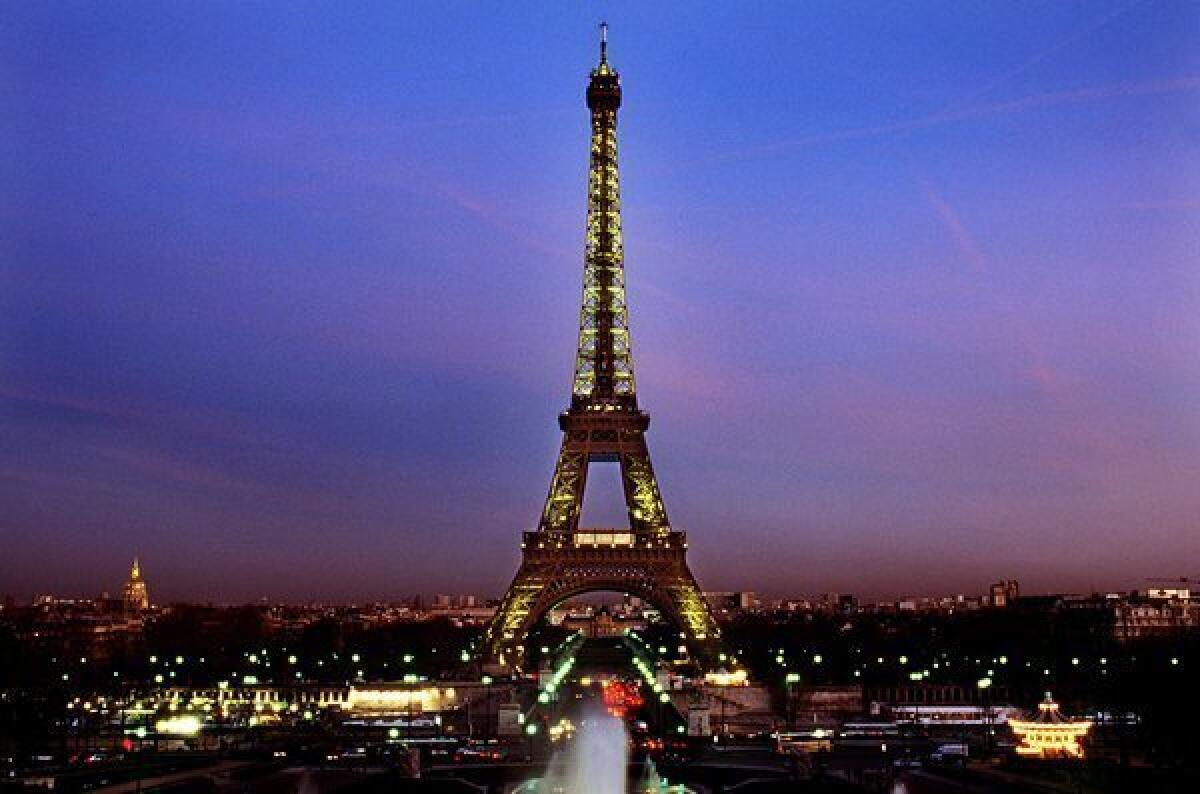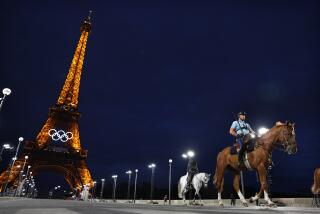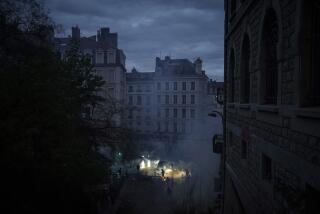Famous French attractions could be left in the dark

- Share via
PARIS -- Is the City of Light about to hit the dimmer switch?
Some of the French capital’s most celebrated attractions, including the luxury stores of the Champs-Elysées, could be thrown into darkness under a government proposal to pull the plug on illumination at night.
Delphine Batho, France’s minister for energy and environment, is drawing up regulations to force shops, offices and public buildings across France to switch off their lights between 1 a.m. and 7 a.m. The new rules, to be outlined “in the next few weeks,” are aimed at saving energy and money as well as showing “sobriety” at a time of economic crisis, Batho told reporters. Major cities, towns and even small villages would be affected.
PANORAMA: View from the Eiffel Tower
Paris was named La Ville Lumiere during the Age of Enlightenment, when it was considered a hub of intellectual ideas and learning. The reputation was cemented when it became one of the first cities to adopt street lighting. Even earlier, in 1524, city dwellers were ordered to keep lights burning in the windows of all houses that faced the street.
Opponents of turning off the lights, including some chambers of commerce, cannot wholly blame Batho and the new Socialist government of President Francois Hollande. The idea was first proposed under former conservative President Nicolas Sarkozy.
“One of our main objectives is to change the culture,” Batho told BFM television. “We need to end the cycle of producing more because we are consuming more. There should be sobriety in energy use.”
Batho said the regulations, which if approved by Parliament would take effect next June, would be imposed “without exception” unless the light was essential for the public, including hospital, police and pharmacy signs.
She added: “Lots of local authorities do this already. It makes good sense.”
The minister’s main targets are shops that leave their windows ablaze every night. The regulations, Batho says, will save $261 million in electricity, the equivalent of that used for non-heating sources by 750,000 households in a year.
Shopkeepers have complained the measure will bring an “obscure gloom” to France’s streets, but many are in favor -- in principle, at least.
“Apart from a few partygoers, who is passing shop windows between 1 a.m. and 6 a.m.?” said Christian Baulme, president of an association of shopkeepers in the southwestern city of Bordeaux.
More to Read
Sign up for Essential California
The most important California stories and recommendations in your inbox every morning.
You may occasionally receive promotional content from the Los Angeles Times.










